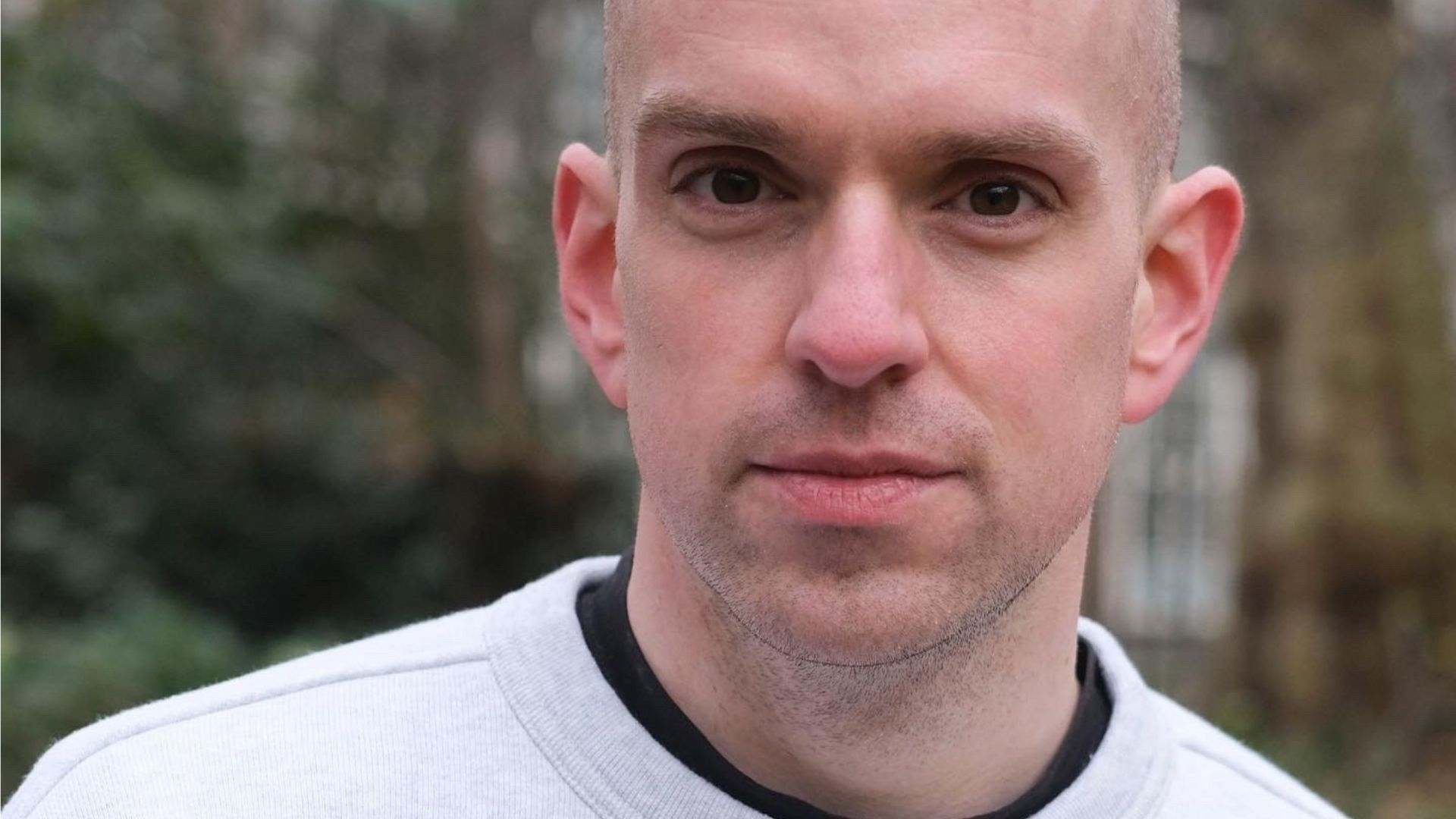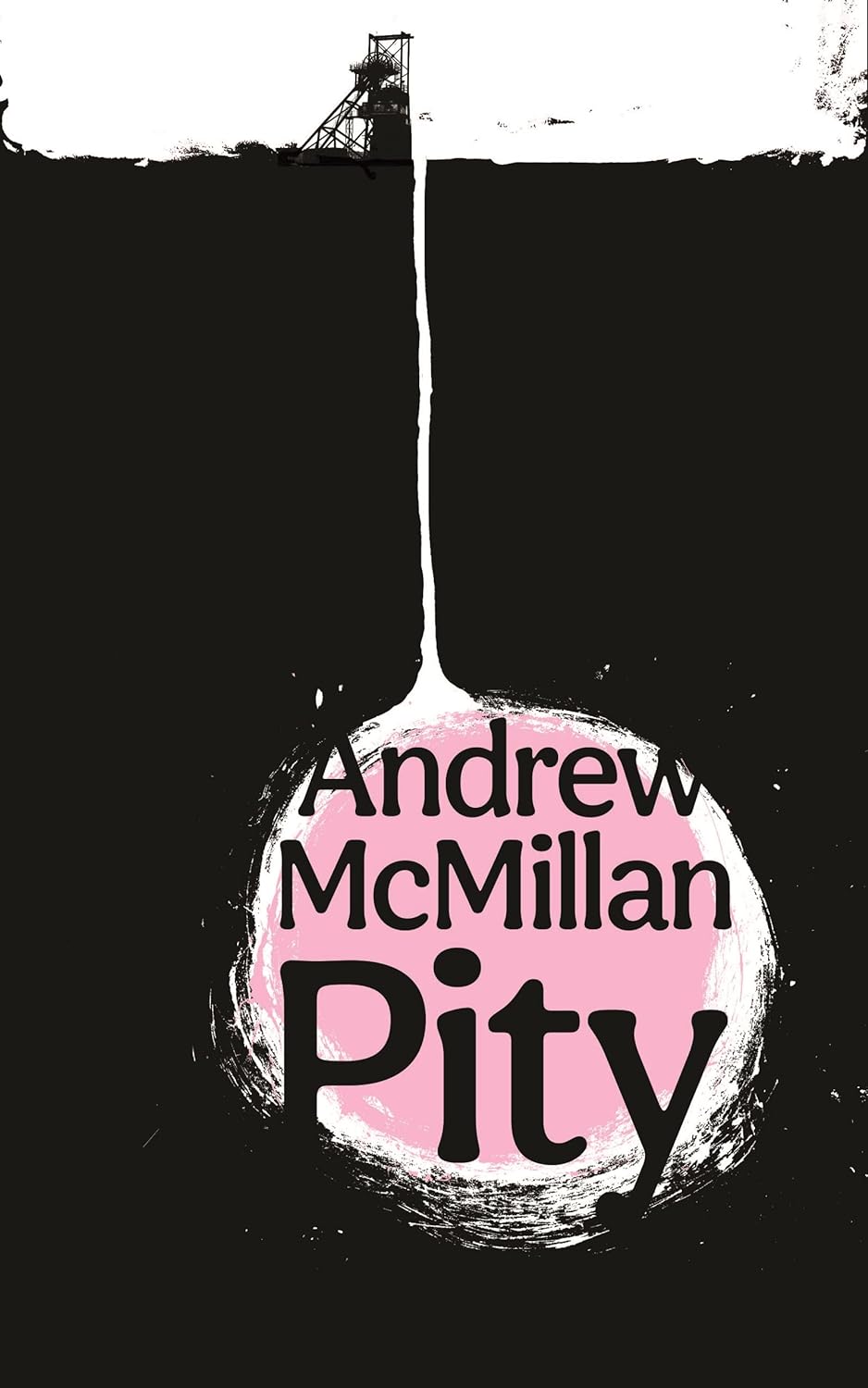You are viewing your 1 free article this month. Login to read more articles.
Andrew McMillan in conversation about language and narrative in his début novel
Award-winning poet Andrew McMillan turns to prose in his début novel Pity which takes in multi-generational perspectives in post-industrial South Yorkshire.
The former industrial town of Barnsley in South Yorkshire is the setting for Pity, the début novel from Andrew McMillan. It tells, in stripped-back yet lyrical prose, of three generations from the same family and their very different lives in a world changed forever by the closure of the pits. McMillan is an acclaimed poet, with three collections to his name. His début collection physical (2015) is distinguished by being the only poetry book to ever win the Guardian First Book Award in its 17-year history. So, why turn to the novel form now?
McMillan, who grew up in Barnsley but now lives in Manchester, speaks to me over video call from his office at the city’s Metropolitan University (MMU), and explains he always envisaged Pity as a novel, primarily as it is not drawn from his own experience. “My poetry has always begun in the ‘self’ and is sometimes called confessional—certainly people talk about the personal elements of it—but there was something about a novel that offered the chance to really step out of the self.”
Pity is told from multiple perspectives but closest perhaps to McMillan’s origins as a poet are the sections set in the past that follow the grandfather’s day. The first of these describes the miners of the town at dawn as they make their way to the pit: “Nobody speaks; they incline their heads as someone else joins them and then keep on walking. More and more men fall out of their houses, like dominoes, their faces not yet blackened”, McMillan writes. He confirms that these sections “were composed almost as I would compose poetry, which is to write and then read it out loud and to really lean on individual words to find the right kind of lilt or the right kind of cadence, sentence by sentence”. There is a palpable sense of community, a village bound and bonded by the pit.
So much of what I was hoping to do with the novel was just to ask the question—who gets to tell what story about what place? What narratives get known of a place?
But in the present day, the colliery is long closed. Brothers Alex and Brian, the miner’s sons, are now middle-aged. Alex’s marriage has ended and he is wrestling with a part of his identity that he has long kept hidden. Brian’s story is told through his interaction with some earnest visiting academics (who also have their own sections, entitled “Fieldnotes”, which offer an outsider’s perspective) at the local working men’s club who wish to explore the “history and inheritance of social trauma”, to Brian’s bemusement. There are free sandwiches though.
In our post-Brexit world, McMillan is particularly interested in “the kind of portrayal of towns like Barnsley as heavily ‘Vote Leave’. I remember one day, a couple of days after the Referendum, Channel 4 News went up to Barnsley to interview people but went to very particular places… where they knew they’d find people that would say things that would confirm the narrative that they’d already assumed,” he says. “So much of what I was hoping to do with the novel was just to ask the question—who gets to tell what story about what place? What narratives get known of a place?”
Grand ambition
McMillan himself has worked as a writer-in-residence in the community and actually wrote himself into the novel as a poet who visits the working men’s club to run a workshop. “It’s not auto-fiction and it’s not my experience that is in the novel, so I thought the best way to get that across was if I had a cameo halfway through,” he jokes. Community writing projects are sometimes maligned, but when they are good, he says, “it’s not about getting them to write in a certain way, or anything like that, it’s often just about allowing a space for [participants] to examine language”.
In the novel, as part of the project, Brian finds himself remembering dialect words he has neither heard nor spoken in years, which leads him to remember old faces. The idea is, McMillan explains, “that if you find new ways to articulate the past, if you find new language to talk about what’s happened, you maybe then begin to find new ways of moving forward. It’s a grand ambition for that type of work, but that’s what I think the hope of it is”.
I often think that over-writing comes from a lack of confidence in language.
Meanwhile, the younger generation, in the form of Simon, Alex’s only son, inhabit a different world again, even further removed from the coalface. Simon, in his 20s, has no memory of men working at the pits. He works in a call centre, but his true passion is his weekly drag queen gig and his burgeoning relationship with security guard Ryan. Simon has to do what the punters want to see for the time being, but he has ambitions to make his drag act more edgy and more overtly political. His act is very much part of the local scene—he appears at the club—and he doesn’t have to hide that part of himself: “It’s not that people didn’t have bad experiences, and small towns can be really hard places, but that’s not the only narrative. It felt really important to me that Simon is accepted as a drag queen, they want him to do it at the local club. He is able to build a life there that feels happy.”
The language in Pity is stripped back, another legacy of McMillan’s origins as a poet, he agrees. “I often think that over-writing comes from a lack of confidence in language. In poetry, one of the things that gets embedded in you early on is the depth that single words or plain phrasing can have. My mission when I started writing poetry was how plain can you make something, but it still be poetic… it’s like walking a tightrope each time.”
But in a more literal way, he found writing a novel a very different process. “With poetry, for me it just happens in the margins of a life, so you can write it on the tram or on the way to work—until you’re editing. But I would try that with the novel, so I’d sit down every few weeks and think, ‘Oh I must do a bit of that novel’, and then think, ‘What were they called? Where is this set?’ The only way to do it—I eventually realised but I suppose is obvious—is to sit in it every day, to really inhabit it, even just for a few hours every morning.”
Jon McGregor has been “a huge influence, both in prose and poetry; that kind of incredibly stripped-back prose that still has emotional heft.” He was also inspired by the work of Max Porter, who he met when their first books came out in the same year, “the way he is able to tell really moving stories but in very untraditional ways”.
Extract
He steps out into the long corridor of early dawn; the street stretching downwards, pointing him to where he’s headed. It’s Monday, and the weekend is still unshaven stubble in his mind. Above, the sky is a solid lump of cloud and three doors down Pat is just closing his front door. Another few doors on there will be Harry and then Frank, and as they all turn the corner together Skip will already be ahead of them and each of them will briefly consider running after him and then think better of it. Nobody speaks; they incline their heads as someone else joins them and then keep on walking. More and more men fall out of their houses, like dominoes, their faces not yet blackened. Someone whistles; someone else coughs. Occasionally some stop, and lean for a moment on the low wall of a garden, pretending they need to double-check their snap tin or enjoy a long drag on their roll-up, sputtering the smoke out into the cold air in shallow breaths. Nobody waits for them, they just keep on walking. The village, on their shoulder now, still asleep, not watching the migration of tired bodies. One of the men once said he thought he could hear the coal ticking. Another man told him to stop talking daft. And beneath their feet, a mile down, history; waiting to be hacked into chunks and pulled out.
McMillan has taught creative writing at MMU since 2017 and was promoted to Professor of Contemporary Writing last year. Teaching the subject has changed his attitude to his own writing: “When I started doing it, it wasn’t that I wasn’t taking my own work seriously, but I maybe wasn’t giving it the rigour that I should have been,” he says. “On a technique level, how we deconstruct what a novel or poem is doing, and how has it done it, [that] can’t help but feed its way back into your own work in some way, the seriousness with which you go back to your own work.”










